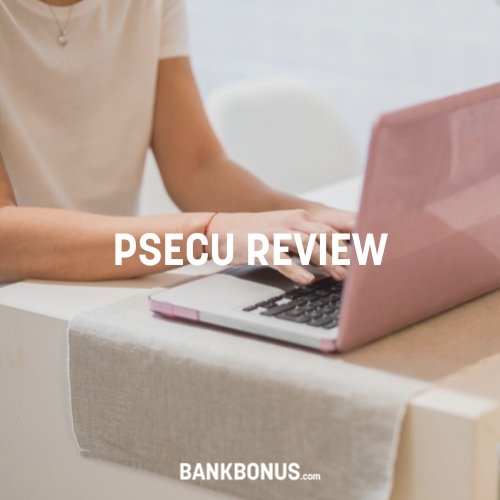CIT Bank is the online-only banking subsidiary of the CIT Group, a financial holding company out of New York City.
CIT has been around since 1908 and has been operating in the personal banking space since its acquisition of OneWest Bank.
Its consumer banking wing consists of retail banking products, consumer loans, and small business loans.
In this post, you’ll find everything you need to know about banking with CIT.
Today’s CIT Bank Rates
Here are CIT Bank’s current APY rates:
| Product | APY | Min Deposit |
|---|---|---|
| eChecking | up to 0.25% | $100 |
| Money Market Account | 1.55% | $100 |
| Platinum Savings | up to 3.85% | $100 |
| Savings Builder | up to 1.00% | $100 |
| Savings Connect | 3.75% | $100 |
CIT Bank Products
One of the nice things about online banks, in general, is that they tend to have fewer account options, which simplifies the account selection process.
CIT eChecking Account
CIT eChecking is an online, interest-bearing checking account.
You can open the account with a minimum opening deposit of $100, and all of your transactions will be completed digitally, or with a debit card.
You can deposit checks through the CIT mobile app, and get ATM fee reimbursements up to $30 per month.
CIT doesn’t operate any of their own ATMs, but the $30 worth of ATM fee reimbursements should be plenty to cover you.
eChecking accounts come with a competitive interest rate on your deposits. The more money you have in your account, the higher the interest rate.
Currently, CIT Bank requires you to have a balance greater than $25,000 to earn their highest rate.
A CIT checking account is advertised as “mostly fee-free” so you won’t see the monthly maintenance fee that you would with a traditional bank
But, there are still some potential fees to be aware of. For example, if you overdraft your account, you’ll get hit with a $30 fee.
CIT Platinum Savings
CIT Platinum Savings is savings account that offers tiered APY rates.
You’ll earn up to 3.85% APY on balances of $5,000 or more. However, balances below that will only earn 0.25% APY.
There are no monthly fees and only $100 is required to open an account.
CIT Savings Connect
CIT Savings Connect is a premier high-yield savings account that pays interest on your deposits according to a flat rate. The rate on this savings account is much higher than their Savings Builder product.
You can make remote deposits and move money through electronic transfers. As with all savings accounts, you’ll be limited to making six withdrawals each month, per federal regulations.
CITs APY is very competitive when you compare it to the national average of traditional big banks.
CIT Savings Builder
For all practical purposes, CIT Savings Builder functions like a traditional online savings account.
However, the account pays interest on your deposits according to a tiered structure.
The more money you put into your new account, the more interest you can earn. There’s a $100 minimum deposit to enroll, and no monthly fees.
Like their checking accounts, CIT offers two tiers of rates.
To qualify for the upper-tier APY, you have a couple of options, either:
- maintain a balance of at least $25,000 or
- make a monthly deposit of at least $100
If your initial deposit is under the $25,000 threshold, you can still get the upper-tier interest rate during a one-month introductory period.
CIT Bank Money Market Account
CIT’s Money Market account is similar to Savings Builder in a few ways. There is no monthly fee and you’ll need to deposit at least $100 upon account opening.
You’ll also be limited to six transactions from each account per month, and earn interest that is compounded daily and paid at the end of each statement cycle.
The first difference is in the APY. There are no tiers with a money market account, and you’ll earn a higher interest rate than in Savings Builder no matter how much you deposit into your account.
You’ll also have more flexibility, with a bill pay option, and the ability to send money through Zelle or Paypal.
With this added flexibility comes the potential for overdrafts, and you’ll be stuck with a $25 fee if you do.
CIT Certificates of Deposit (CD)
CIT offers four different types of CD accounts.
As a quick refresher, a CD is a type of savings account that comes with a guaranteed interest rate that you earn on deposited funds for a fixed term.
The benefit of a CD is that your rate won’t be subject to market volatility, and you won’t be tempted to withdraw funds as the account matures.
Here’s a look at CIT’s CD accounts:
1. CIT Term CDs
A Term CD allows you to choose the term length for your deposit. There’s a $1,000 minimum deposit for a Term CD account, no matter how long you commit.
Term options range from 6 months to 5 years, and the CD rate you lock in varies depending on the length of your term.
Keep in mind that if you take funds out from a CD before the term expires there will be an early withdrawal penalty. Before you lock in the term, make sure you won’t need access to those funds.
This would not be a good place to stash your emergency fund, for example.
| Product | APY | Min Deposit |
|---|---|---|
| 6 Month CD | 3.00% | $1,000 |
| 1 Year CD | 0.30% | $1,000 |
| 13 Month CD | 3.35% | $1,000 |
| 18 Month CD | 3.00% | $1,000 |
| 2 Year CD | 0.40% | $1,000 |
| 3 Year CD | 0.40% | $1,000 |
| 4 Year CD | 0.50% | $1,000 |
| 5 Year CD | 0.50% | $1,000 |
2. CIT No-Penalty CDs
CIT’s No-Penalty CD could be a good option if you might need access to your funds before the term is over.
There is a $1,000 minimum deposit to open an account, and the No-Penalty CD only comes with an 11-month term.
During this time, you’ll be able to transfer funds from the account if you need to without penalty.
You’ll even get to hold onto all of the interest you’ve accumulated if you need to dip out early. The only restriction is that you won’t be able to take money out for 6 business days following your deposit.
As you might expect, there’s a trade-off for this added flexibility. The interest rate is a bit lower than a Term CD.
| Product | APY | Min Deposit |
|---|---|---|
| 11 Month No-Penalty CD | 3.35% | $1,000 |
3. Jumbo CDs
A Jumbo CD is simply a Term CD with fewer term options and a higher upfront cash requirement.
You’ll need at least $100,000 to open a Jumbo CD.
| Product | APY | Min Deposit |
|---|
4. RampUp CDs
CIT’s RampUp CD comes with the option to “ramp up” to a higher rate once per term, which can be beneficial if the Federal Reserve increases rates during that time.
RampUp CDs are offered for 1 to 4 year periods, and there’s a $25,000 minimum opening deposit requirement.
This is the only CIT account that is not available to new customers. So, you’ll need to have another CIT bank account set up first before you consider a RampUp CD.
Home Loans
CIT is an Equal Housing Lender and provides a few different options when it comes to mortgages.
If you’re thinking about buying or refinancing a home, here are your options:
- 10 or 30-year mortgages, with fixed interest rates
- Adjustable-rate mortgages
- FHA loans, which are subsidized home loans through the Federal Housing Authority
Home loans are a relatively new business for CIT, so it’s hard to say how the rates and service compare with lenders who have been at it longer.
That being said, CIT is currently offering a solid bonus when it comes to mortgages, with $525 in cash back up for grabs if you apply as an existing CIT customer.
CIT Bank Fees
CIT Bank is one of the best online financial institutions when it comes to low and no fees.
Because CIT is an online bank, it has much lower operating costs than traditional banks. Therefore, CIT doesn’t need to charge as many fees as big national banks.
With CIT, you won’t have to deal with monthly service fees, minimum balance requirements, or non-bank ATM fees.
That being said, CIT Bank isn’t 100% fee-free, so let’s review the types of fees that you can still expect to run into (and hopefully avoid).
Overdraft Fees
If you overdraft your eChecking account, there’s a $25 fee. Money Market account overdrafts cost $30.
Both accounts are susceptible to four overdraft fees each day if multiple transactions occur while you have insufficient funds.
If this is a concern, you might want to link your CIT savings account and enroll in overdraft protection.
Wire Transfer Fees
CIT doesn’t charge any fees when it comes to incoming wire transfers.
If you’re sending them out, you’ll pay $10 for each wire transfer. If your account has a balance of $25,000 or more, this fee will be waived.
Excessive Transaction Fees
CIT Bank charges an excessive transaction fee of $10 in its Money Market and savings accounts. There’s a monthly fee cap of $50.
Most banks charge excessive transaction fees, so this is not out of the ordinary.
Bill Pay Stop Payment Fees
If you need to stop a payment that you’ve sent out to cover a bill, you’ll be charged a $30 fee. There’s no real way around this one, so just be careful when you’re paying your bills each month.
Debit Card Fees
Your initial debit card is free. If you wind up losing it, you’ll get one free replacement per year. Anything on top of this will result in a $10 fee. If you need your card ASAP, you could pay up to $45 for rush delivery.
Foreign Transaction Fees
When traveling abroad, it’s probably best not to use your CIT debit card. That’s because you’ll have to pay a 1% foreign transaction fee for any international purchases or ATM withdrawals. This amount is on pace with other banks.
However, if you like to travel, you’re probably better off looking into a travel rewards credit card that doesn’t have foreign transaction fees.
Getting Started
Signing up for CIT Bank is easy. Simply visit the CIT Bank website and click the green Open Account button to get started.
Next, fill out your name, address, and basic contact information. You’ll also need the following things ready to go:
- Social Security Number
- Driver’s License or other State ID
- A check, or account and routing numbers from the bank account you will use to fund your CIT account
- Names and information for any other account holders who will be associated with the new account
Once you’re signed up and make your initial deposit, you’ll gain access to online banking and the CIT mobile app.
CIT Bank Promotions
Here are some of the best CIT Bank promotions going on right now:
1. Platinum Savings - up to $300 bonus
Expires: Limited Time
Available nationwide, CIT is offering up to a $300 welcome bonus when you open a new Platinum Savings account and deposit new money. The amount you can earn depends on how much cash you bring to the table -- and it's not a small amount. You'll need at least $25,000 to earn a $225 bonus or $50,000 for the full $300.
What's even more? You'll also earn 3.85% APY on your money, which makes this a really solid offer! This bonus is also open to existing Platinum Savings accountholders that enroll and complete the requirements.
How to earn the bonus
The Platinum Savings sign up offer requires you to deposit and maintain a minimum balance in order to earn the $300 bonus. Full requirements to receive this bonus are:
- New customers can open a Platinum Savings account with promo code PS2025.
- Within 30 days, deposit new money in one or more deposits as follows: $25,000 - $49,999.99, earn $225; $50,000+ earn $300.
- Bonus will be added to your account within 60 days of qualifying (up to 90 days after account opening)
Apply now to earn the $300 bonus from CIT
Learn More:
Security
Security is often a point of anxiety for online banking newcomers.
With that in mind, here are some of the security measures that CIT takes to ensure that your banking is worry-free:
- FDIC-insured: Like all banks, CIT is insured by the FDIC, meaning that your deposits are covered up to $250,000.
- Transaction and activity monitoring: CIT keeps track of all your transactions and monitors for any suspicious behaviors. If you’re the victim of fraud or an unauthorized transaction, CIT has a dedicated phone support line to help you out.
- Anti-virus protection: This is a big one with online banks. Since its entire platform is online, CIT has protections in place to keep its software virus-free.
- 128-bit Secure Socket Layer (SSL) encryption: SSL encryption keeps your account and personal information secure while you’re engaging in the bank’s web and mobile platforms.
Customer Service
CIT Bank has a few different customer support options when you need some help.
Its first line of defense is a comprehensive set of hundreds of FAQs on the website, which cover everything from general banking to specific account questions.
The CIT mobile app, which is highly rated on both Apple and Android, allows you to submit customer service questions 24/7, although you may have to wait until regular business hours to get an answer.
If you prefer talking to someone on the phone, the customer service line is open Monday through Friday from 9:00 am to 9:00 pm, and 10:00 am to 6:00 pm on Saturdays. It’s closed on Sundays, but you’ll have 24/7 access to an automated phone line that can be used for simple tasks like monitoring your account balance.
Overall, CIT has a stellar reputation when it comes to customer service. CIT account holders tend to express a high level of satisfaction, which you can see expressed by its 4.5-star rating (out of 5) on TrustPilot. This is among the highest ratings for banks on the review site.
When it comes to customer service, online banks, like CIT Bank, have a couple of things working in their favor.
First, they don’t have the same volume of customers as big banks, so the experience of customer support is typically a little more personalized. Second, without physical branches, online banks can consolidate support services over the phone and online, allowing for those systems to become more streamlined.
Pros & Cons
Next, let’s take a look at the pros and cons of working with CIT Bank.
Pros:
- Easy to use online platform
- No monthly fees
- Top-ranking APY rates on HYSA and Money Market accounts
- Excellent customer service
Cons:
- No physical branches
- Cannot deposit cash
- High balance requirements for upper-tier interest rates
Alternatives to CIT Bank
CIT’s main competitors are other online banks such as:
Each of these banks tends to offer many of the same things as CIT, including higher than average interest rates, no or low monthly fees, and no physical branches.
If you prefer an in-person banking experience, you might want to look into a more traditional option, such as Chase Bank, Wells Fargo, Citibank, or Bank of America.
CIT Bank FAQs
Before you decide if CIT is the place for you, let’s glance at some of the most common questions that people are asking.
Is CIT a legit bank?
Yes, CIT is a legit bank. Hands down.
CIT Bank is a secure, FDIC-insured, online bank that can handle most of your everyday banking needs. It’s also backed by the CIT Group, which is a financial institution that boasts over 100 years of history in the industry.
As an online bank, CIT doesn’t have any brick and mortar locations. You can’t deposit cash, or stop into a local branch if you need help. But your funds will definitely be secure.
Is CIT associated with Citibank?
No. Despite the similar name, CIT has absolutely nothing to do with Citibank.
This is a common mix-up, but CIT and Citibank are wildly different banks. If you thought you’d been reading about Citibank this entire time, feel free to check out our review of them here.
To be clear, CIT Bank is a subsidiary of the CIT Group, and Citibank is the banking subsidiary of Citigroup.
How do I withdraw and deposit money with an online bank?
The most common issue that people tend to run into when transitioning from a traditional bank to an online option is when it comes to deposits and withdrawals. It can be a bit of an adjustment, but you’ll still have the same access to the money in your account.
With CIT, you can withdraw money from any ATM, and get reimbursed for any fees. You can also get cash back at grocery stores or retailers when making purchases with your debit card.
As for deposits, you’ll only be able to deposit checks through the mobile app. You cannot deposit checks at an ATM or with a bank teller.
Your best bet is to set up a direct deposit with your employer. If you work in a cash-based industry, things get a little trickier, since there’s no way to deposit cash with CIT. Your only option here is to deposit your cash into another account and transfer the funds over.
When it comes to online banking, it’s always best to feel comfortable with financial technology. Services like Zelle, Paypal, Apple Pay, and Samsung Pay can be your best friends. However, if you frequently need to deposit cash, an online bank probably isn’t the best option for you.
Does CIT have account options for students or children?
CIT doesn’t have specific account options designed for students or younger people. However, parents can open an account for a child with a CIT custodial account.
A custodial account is simply a bank account that is held by an adult guardian on behalf of a minor. You can turn any CIT account, with the exception of eChecking, into a custodial account. The child will not have access to the funds without the approval of the adult account holder.
Taking a step back — online banks, like CIT, are becoming increasingly popular among young people because of the convenience and the low fee structure.
Is CIT better than Ally?
As far as online banks go, CIT and Ally are two of the best. Ally is probably the more well-known of the two but offers a lot of the same benefits that you’ll get with CIT, including competitive interest rates, low fees, and good customer service, among other things.
In terms of which option is better, you’ll have to decide for yourself what’s most important to you. Ally has more account options, and currently boasts higher APYs on most accounts, with the exception of Money Market.
CIT takes the win in the customer service department. As a reminder, CIT’s TrustPilot rating is a commendable 4.5 stars (out of 5), whereas Ally’s TrustPilot rating is just 1.4 stars.
Is CIT Bank Right For You?
The first step in determining if CIT Bank is a good fit is to figure out if online banking is right for you. Or, do you prefer the traditional experience of a big national bank?
If you often handle cash, or if you’re looking for boatloads of account options and physical branch access, an online bank like CIT might not be what you’re looking for.
On the other hand, if you don’t need those things, and you’re interested in an online account that offers higher interest rates and fewer fees, you’re on the right track with CIT Bank.
CIT offers competitive interest rates on HYSAs and CDs and has one of the highest APYs out there for a Money Market account.
The bank’s interest-bearing checking account is a solid bet as well. Tie it all up with well-regarded customer service and the ability to bank from anywhere, and you’ve got a pretty solid option.
The bottom line is that CIT is a great banking choice for anyone looking for simplicity, fee avoidance, and a modern platform to service their personal finance needs. Whether it’s the right option for you depends on your financial goals and needs.
Only you can take that next step toward securing your financial future. Good luck!





Comments are closed.
Comments are closed here.